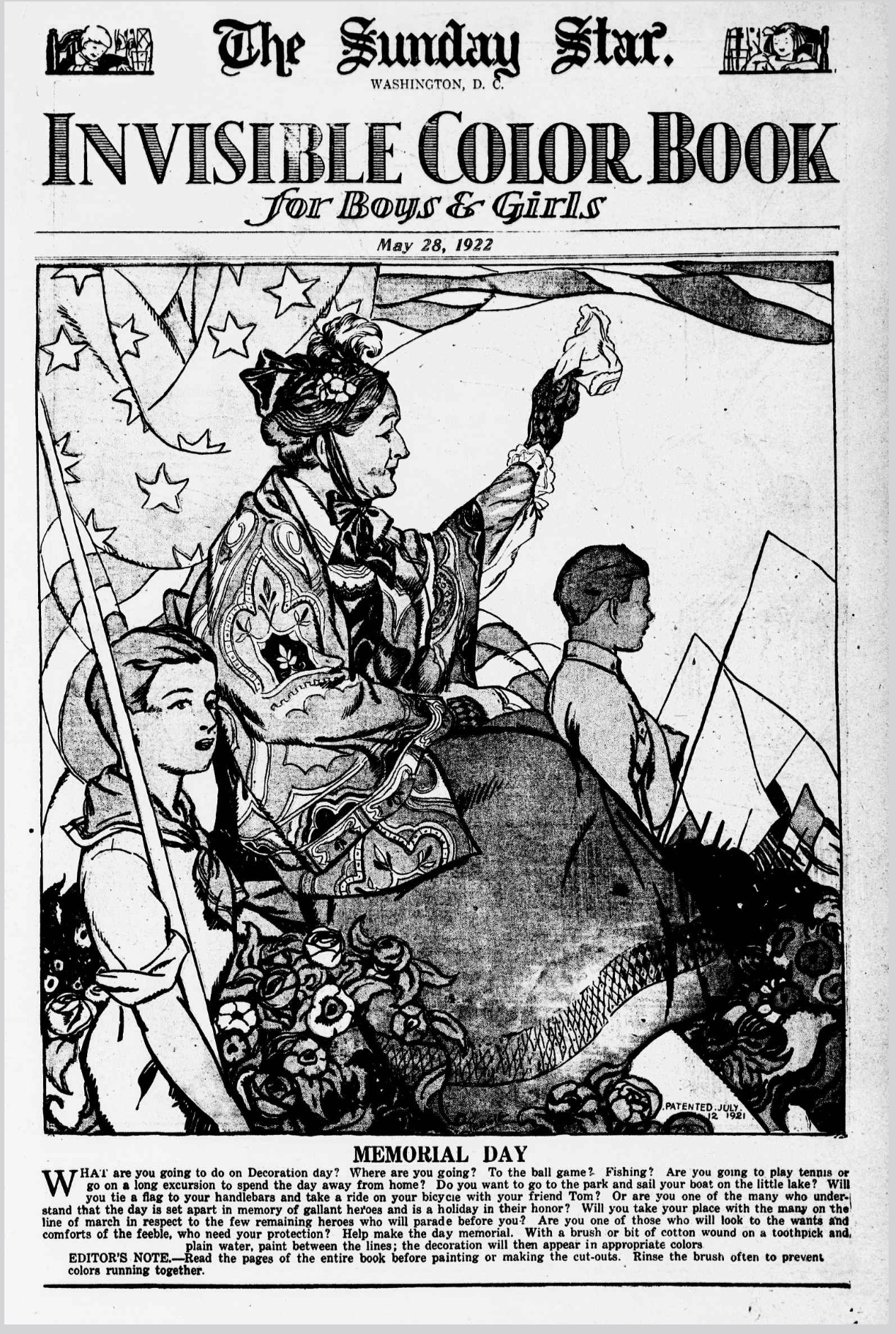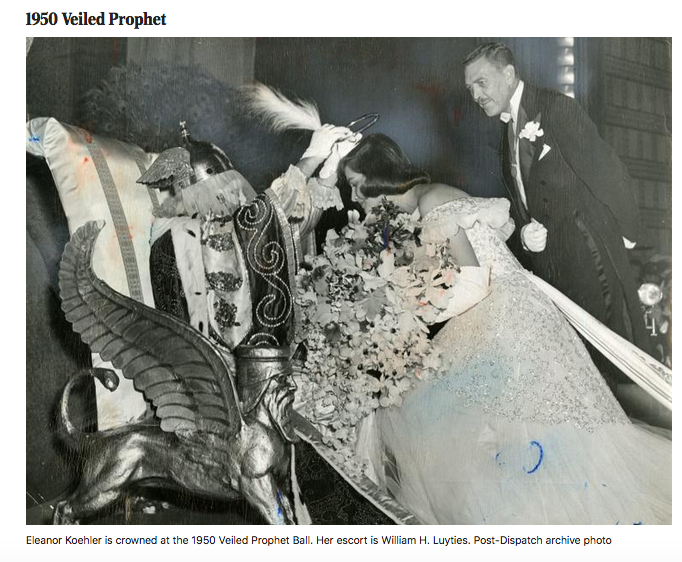Twentieth Century
Artwork Khrushchev Probably Would Not Have Liked 51
His Wikipedia page.
Posted By: Paul - Sun Jun 18, 2023 -
Comments (1)
Category: Art, Avant Garde, Statues and Monuments, Russia, Twentieth Century
Bevo
Perhaps Anheuser-Busch could reintroduce this beverage to bolster their flagging sales."Bevo" was the name of a non-alcoholic "near beer" produced by the Anheuser-Busch brewery in Saint Louis. Introduced in 1916 as the national debate over Prohibition threatened the company's welfare, the drink was extremely popular through the 1920s. Over 50 million cases were sold annually in fifty countries. Anheuser-Busch named the new drink "Bevo" as a play on the term "pivo," the Bohemian word for beer.
The Wikipedia page.
An article about a Bevo incident in Texas.

Posted By: Paul - Wed Jun 14, 2023 -
Comments (6)
Category: Replacements, Substitutes, Alternatives and Knock-offs, Advertising, Twentieth Century, Alcohol
Miss Sportsorama
I find newspaper references to this beauty title from 1955 to 1990. But I do not think they all refer to the same contest. The largest number of references relate to a trout-fishing contest in NY State.


Posted By: Paul - Tue Jun 13, 2023 -
Comments (0)
Category: Awards, Prizes, Competitions and Contests, Beauty, Ugliness and Other Aesthetic Issues, Sports, Twentieth Century
James Eads How, The Millionaire Hobo
His Wikipedia page.In addition to advocating for hobos, How chose to live as one, even though he had both money and education. He wore a shaggy beard and rough tramplike clothes. It was said that even ordinary hobos looked well dressed compared to How.[3] From about age 25, he traveled around doing hard work for a living.[11] One of How's contemporaries, sociologist Nels Anderson, describes how fully How immersed himself in the hobo lifestyle and how seriously How took his work:
Millionaire that he is, How has not failed to familiarize himself with every aspect of tramp life. He knows the life better than many of the veteran hobos. He has become so thoroughly absorbed in the work of what he describes as organizing the "migratory, casual, and unemployed"...workers that he practically loses interest in himself. He becomes obsessed with some task at times that he will walk the streets all day without stopping long enough to eat.



Posted By: Paul - Sat Jun 10, 2023 -
Comments (1)
Category: Bums, Hobos, Tramps, Beggars, Panhandlers and Other Streetpeople, Eccentrics, Money, Twentieth Century
UPenn Gargoyles
Read about these weird architectural embellishments here, with more pix.And also here.
In the 1890s and the first couple decades of the twentieth century, Penn engaged Philadelphia architects Cope and Stewardson to design several University buildings. With their design for the Quadrangle, whose first section opened in 1896, Cope and Stewardson emulated several vintage eras of English architecture in a style that became known as Collegiate Gothic. In a delightful homage to Elizabethan architecture, they incorporated several dozen bosses into their design. They worked with sculptors Henry Plasschaert and John Joseph Borie (a Penn architecture alumnus) and stone carvers Edmund Wright, Edward Maene and assistants to turn these uncut stones into sculpted figures. Cope and Stewardson approved elevation views and clay models of each proposed boss, which was then carved over a period of three to four days from a fourteen-inch square piece of Indiana limestone that had been incorporated into the Quadrangle.
Mr. Plasschaert and his carvers kept the mood of these bosses whimsical. Parodic figures are abundant, such as a grotesque animal biting the corner of a block of stone, or an architect dressed in an elf costume carrying a basket of fruit. A variety of mythical creatures and bizarre monsters are on display, as is the occasional reference to academic activity, like the creatures brandishing tragedy and comedy masks atop the Mask and Wig clubhouse, or a monkey clutching a scroll labeled “diploma.”


Posted By: Paul - Wed Jun 07, 2023 -
Comments (4)
Category: Architecture, Regionalism, Nineteenth Century, Twentieth Century
Happy Memorial Day 2023!

WHAT are you going to do on Decoration day? Where are you going? To the ball game? Fishing? Are you going to play tennis or go on a long excursion to spend the day away from home? Do you want to go to the park and sail your boat on the little lake? Will you tie a flag to your handlebars and take a ride on your bicycle with your friend Tom? Or are you one of the many who understand that the day is set apart in memory of gallant heroes and is a holiday in their honor? Will you take your place with the many on the line of march in respect to the few remaining heroes who will parade before you? Are you one of those who will look to the wants and comforts of the feeble, who need your protection? Help make the day memorial. With a brush or bit of cotton wound on a toothpick and plain water, paint between the lines; the decoration will then appear in appropriate color. EDITOR'S NOTE.—Read the pages of the entire book before painting or making the cut-outs. Rinse the brush often to prevent colors running together.
Posted By: Paul - Mon May 29, 2023 -
Comments (0)
Category: Holidays, Armed Forces, Twentieth Century
The Queen of Love and Beauty at the Veiled Prophet’s Ball
The Veiled Prophet Parade and Ball was a yearly civic celebration in St. Louis, Missouri, over which a mythical figure called the Veiled Prophet presided. The first events were in 1878. The parade and ball were organized and funded by the Veiled Prophet Organization, an all-male, secret society[3][4][5] founded in 1878 by prominent St. Louisans.
The organization chooses one member to be a Veiled Prophet who conducts meetings and oversees activities but not necessarily for one year, spokesman Allyn Glaub said in 1991. They were a highly select group culled from the area's business, civic and governmental leaders, "the people who run St. Louis and St. Louis County."
See the 1938 Veiled Prophet below.

The Wikipedia article on the ball itself here.

A list of all queens.
Posted By: Paul - Mon May 08, 2023 -
Comments (0)
Category: Awards, Prizes, Competitions and Contests, Beauty, Ugliness and Other Aesthetic Issues, Clubs, Fraternities and Other Self-selecting Organizations, Disguises, Impersonations, Mimics and Forgeries, Parades and Festivals, Regionalism, Nineteenth Century, Twentieth Century, Twenty-first Century
Maco Toys Firefly Safety Helmet
What do you think? Would this have earned envy or disdain from fellow kids? Cool or uncool?The maker's Wikipedia page.



Posted By: Paul - Thu Apr 27, 2023 -
Comments (4)
Category: Bicycles and Other Human-powered Vehicles, Geeks, Nerds and Pointdexters, Toys, Self-protection, Defenses, and Safeguards, Twentieth Century
The Films of Jean Rollin
I confess to never having heard of this director until recently. But his legacy certainly seems one of High Weirdness. A new documentary (first clip) chronicles his career.His Wikipedia page.
Caution: Mild nudity in the clips.
Posted By: Paul - Tue Apr 18, 2023 -
Comments (3)
Category: Horror, Movies, Outsider Art, Fantasy, Europe, Twentieth Century
Sydna Yokley, Rodeo Prodigy
Sydna--seen here in a 1939 LIFE magazine feature--debuted on the rodeo circuit at age 12. She had an outstanding career (see her FIND A GRAVE obit) but died young--under the hooves of her favorite horse.


A nice write-up of her life here.
A 1977 retrospective feature here.

Posted By: Paul - Thu Apr 13, 2023 -
Comments (4)
Category: Animals, Contests, Races and Other Competitions, Regionalism, Sports, North America, Twentieth Century

| Who We Are |
|---|
| Alex Boese Alex is the creator and curator of the Museum of Hoaxes. He's also the author of various weird, non-fiction, science-themed books such as Elephants on Acid and Psychedelic Apes. Paul Di Filippo Paul has been paid to put weird ideas into fictional form for over thirty years, in his career as a noted science fiction writer. He has recently begun blogging on many curious topics with three fellow writers at The Inferior 4+1. Contact Us |




